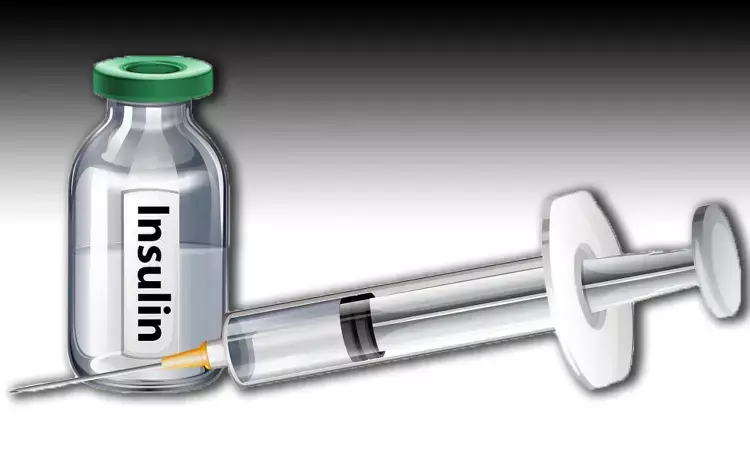- Home
- Medical news & Guidelines
- Anesthesiology
- Cardiology and CTVS
- Critical Care
- Dentistry
- Dermatology
- Diabetes and Endocrinology
- ENT
- Gastroenterology
- Medicine
- Nephrology
- Neurology
- Obstretics-Gynaecology
- Oncology
- Ophthalmology
- Orthopaedics
- Pediatrics-Neonatology
- Psychiatry
- Pulmonology
- Radiology
- Surgery
- Urology
- Laboratory Medicine
- Diet
- Nursing
- Paramedical
- Physiotherapy
- Health news
- Fact Check
- Bone Health Fact Check
- Brain Health Fact Check
- Cancer Related Fact Check
- Child Care Fact Check
- Dental and oral health fact check
- Diabetes and metabolic health fact check
- Diet and Nutrition Fact Check
- Eye and ENT Care Fact Check
- Fitness fact check
- Gut health fact check
- Heart health fact check
- Kidney health fact check
- Medical education fact check
- Men's health fact check
- Respiratory fact check
- Skin and hair care fact check
- Vaccine and Immunization fact check
- Women's health fact check
- AYUSH
- State News
- Andaman and Nicobar Islands
- Andhra Pradesh
- Arunachal Pradesh
- Assam
- Bihar
- Chandigarh
- Chattisgarh
- Dadra and Nagar Haveli
- Daman and Diu
- Delhi
- Goa
- Gujarat
- Haryana
- Himachal Pradesh
- Jammu & Kashmir
- Jharkhand
- Karnataka
- Kerala
- Ladakh
- Lakshadweep
- Madhya Pradesh
- Maharashtra
- Manipur
- Meghalaya
- Mizoram
- Nagaland
- Odisha
- Puducherry
- Punjab
- Rajasthan
- Sikkim
- Tamil Nadu
- Telangana
- Tripura
- Uttar Pradesh
- Uttrakhand
- West Bengal
- Medical Education
- Industry
Hybrid closed-loop insulin therapy effectively improves blood sugar control in T1D

log Rochelle, NY- Despite improvements in care, a majority of youth with type 1 diabetes still fail to meet blood sugar control targets.
Hybrid closed-loop insulin therapy improved blood sugar control in adolescents and young adults with type 1 diabetes finds an International Diabetes Closed-Loop (iDCL) Trial.
The findings are reported in the peer-reviewed journal Diabetes Technology & Therapeutics (DTT).
Researchers conducted a new study to assess the efficacy and safety of closed-loop control (CLC) insulin delivery system in adolescents and young adults with type 1 diabetes.
Adolescents and young adults with a mean age of 17 years were randomly assigned to a closed-loop control (CLC) insulin delivery system or a sensor augmented pump (SAP) with a continuous glucose monitoring system over a 6-month period. The Time in Range increased by 13% for the CLC group, compared to a decrease of 1% with SAP, for a group difference of +3.1 hours/day. This reflected a reduction in time spent at >180 mg/dL. The use of CLC was especially effective at increasing Time in Range overnight.
"Notably, we found that this sample of adolescents and young adults successfully used the CGM more than 90% of the time during the 6-month trial and the closed-loop system was active 89% of the time," stated John Lum, Jaeb Center for Health Research, and the iDCL Trial Research Group.
The researchers concluded that use of closed-loop control for 6 months was substantial and associated with improved TIR and reduced hypoglycemia in adolescents and young adults with type 1 diabetes. Thus, closed-loop control has the potential to improve blood sugar outcomes in this challenging age group.
"Multiple Automated Insulin Delivery (AID) systems using different algorithms have been developed in the past decade for patients with type 1 diabetes. Almost all of the systems have shown significant reductions in nocturnal hypoglycemia. The iDCL multicenter trial done in young adults and adolescents with T1D reported in this issue of DTT further advances the use of hybrid closed-loop system by increasing the time-in-range, especially during the night," says Satish Garg, MD, University of Colorado Denver and Editor-in-Chief of Diabetes Technology & Therapeutics.
https://www.liebertpub.com/doi/10.1089/dia.2020.0572
Hina Zahid Joined Medical Dialogue in 2017 with a passion to work as a Reporter. She coordinates with various national and international journals and association and covers all the stories related to Medical guidelines, Medical Journals, rare medical surgeries as well as all the updates in the medical field. Email: editorial@medicaldialogues.in. Contact no. 011-43720751
Dr Kamal Kant Kohli-MBBS, DTCD- a chest specialist with more than 30 years of practice and a flair for writing clinical articles, Dr Kamal Kant Kohli joined Medical Dialogues as a Chief Editor of Medical News. Besides writing articles, as an editor, he proofreads and verifies all the medical content published on Medical Dialogues including those coming from journals, studies,medical conferences,guidelines etc. Email: drkohli@medicaldialogues.in. Contact no. 011-43720751


